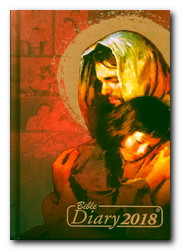3RD WEEK OF ADVENT
Psalter: Week 3 / (Violet/Rose)
Ps 72:1-2, 3-4ab, 7-8, 17
Justice shall flourish in his time, and fullness of peace for ever.
1st Reading: Gen 49:2, 8-10
“Gather around, sons of Jacob. And listen to your father Israel!
Judah, your brothers will praise you! You shall seize your enemies by the neck! Your father‘s sons shall bow before you. Judah, a young lion! You return from the prey, my son! Like a lion he stoops and crouches, and like a lioness, who dares to rouse him? The scepter shall not be taken from Judah, nor the ruler‘s staff from between his feet, until he comes to whom it belongs, and who has the obedience of the nations.
Gospel: Mt 1:1-17
This is the account of the genealogy of Jesus Christ, son of David, son of Abraham.
Abraham was the father of Isaac, Isaac the father of Jacob, Jacob the father of Judah and his brothers.
Judah was the father of Perez and Zerah (their mother was Tamar), Perez was the father of Hezron, and Hezron of Aram. Aram was the father of Aminadab, Aminadab of Nahshon, Nahshon of Salmon.
Salmon was the father of Boaz. His mother was Rahab. Boaz was the father of Obed. His mother was Ruth. Obed was the father of Jesse.
Jesse was the father of David, the king. David was the father of Solomon. His mother had been Uriah‘s wife.
Solomon was the father of Rehoboam. Then came the kings: Abijah, Asaph, Jehoshaphat, Joram, Uz ziah, Jotham, Ahaz, Hezekiah, Ma nasseh, Amon, Josiah.
Josiah was the father of Jechoniah and his brothers at the time of the deportation to Babylon.
After the deportation to Babylon, Jechoniah was the father of Salathiel and Salathiel of Zerubbabel.
Zerubbabel was the father of Abiud, Abiud of Eliakim, and Eliakim of Azor. Azor was the father of Zadok, Zadok the father of Akim, and Akim the father of Eliud. Eliud was the father of Eleazar, Eleazar of Matthan, and Matthan of Jacob.
Jacob was the father of Joseph, the husband of Mary, and from her came Jesus who is called the Christ — the Messiah.
There were then fourteen generations from Abraham to David, and fourteen generations from David to the deportation to Babylon, and fourteen generations from the deportation to Babylon to the birth of Christ.
Reflections
Today‘s passage from Matthew is the opening of his Gospel. The genealogy is divided into three significant parts, each with fourteen generations. The first part is from Abraham down to David, the second from David to the deportation to Babylon, and the third from the deportation to Joseph and Mary. It is not a complete genealogy. The names mentioned all appear one way or another in the Hebrew Testament. There are four women mentioned – Tamar, Rahab, Ruth and Bathsheba. They are interesting characters in their own right. The Book of Genesis (38:15) recounts that Tamar pretended to be a harlot and seduced her father-in-law, Judah. Rahab was a prostitute, as the Book of Joshua attests (Jos 2:1), but the New Testament praises her for her faith and good works (Heb 11:31 and Jas 2:25). Ruth was one who showed her Jewish mother-in-law care and fidelity. The infamous Bathsheba that Matthew described simply as Uriah‘s wife committed adultery with David. By including these women in Jesus' genealogy, Matthew is showing us that God takes humanity as it is to bring an unfolding plan to fulfillment. It involves sin and conversion, success and failure, sinners and saints. But God is at work in it, making broken ways straight and rough ways smooth. And ultimately, God's love prevails, a truth revealed in the person and life of Jesus. Jesus comes in our midst and is totally incarnated in the world so that he could communicate the message of God‘s love to the world and for the world. We are not true to our calling if we think that, in order to be true to Jesus, we have to separate ourselves from a material and sinful world. St. Thomas is right when he says that grace builds on nature.
Daily Reflection 2018
Bible Diary ® is a product of Claretian Publications, a division of Claretian Communications Foundation, Inc. (CCFI) which is a pastoral endeavor of the Claretian Missionaries in the Philippines that brings the Word of God to people from all walks of life. CCFI aims to promote integral evangelization and renewed spirituality that is geared towards empowerment and total liberation in response to the needs and challenges of the Church today.
CCFI is a member of Claret Publishing Group, a consortium of the publishing houses of the Claretian Missionaries all over the world: Bangalore, Barcelona, Buenos Aires, Chennai, Colombo, Dar es Salaam, Lagos, Madrid, Macao, Manila, Owerry, São Paolo, Varsaw , Yaoundé.
Biblical Texts are taken from Christian Community Bible, Catholic Pastoral Edition (57th Edition) The New English Translation for the ROMAN MISSAL
With permission from the EPISCOPAL COMMISION ON LITURGY of the Catholic Bishops’ Conference of the Philippines
Copyright © 2O17
Claretian Communications Foundation, Inc.
U.P. P.O. Box 4, Diliman,
1101 Quezon City, Philippines
Tel.: (63-2) 921-3984
Fax: (6352) 921-7429
Email: ccfi@claretianpublicationscom
This email address is being protected from spambots. You need JavaScript enabled to view it.
Web: www.claretianph.com


